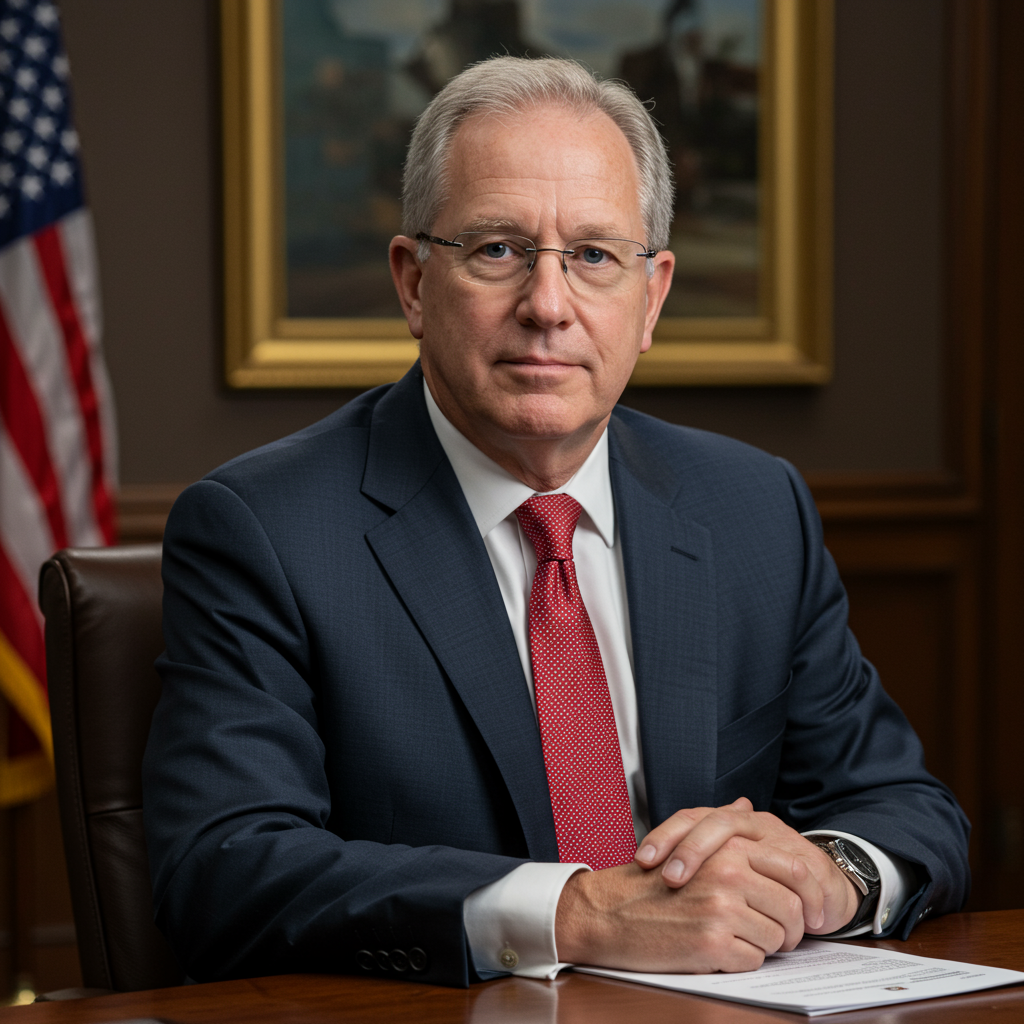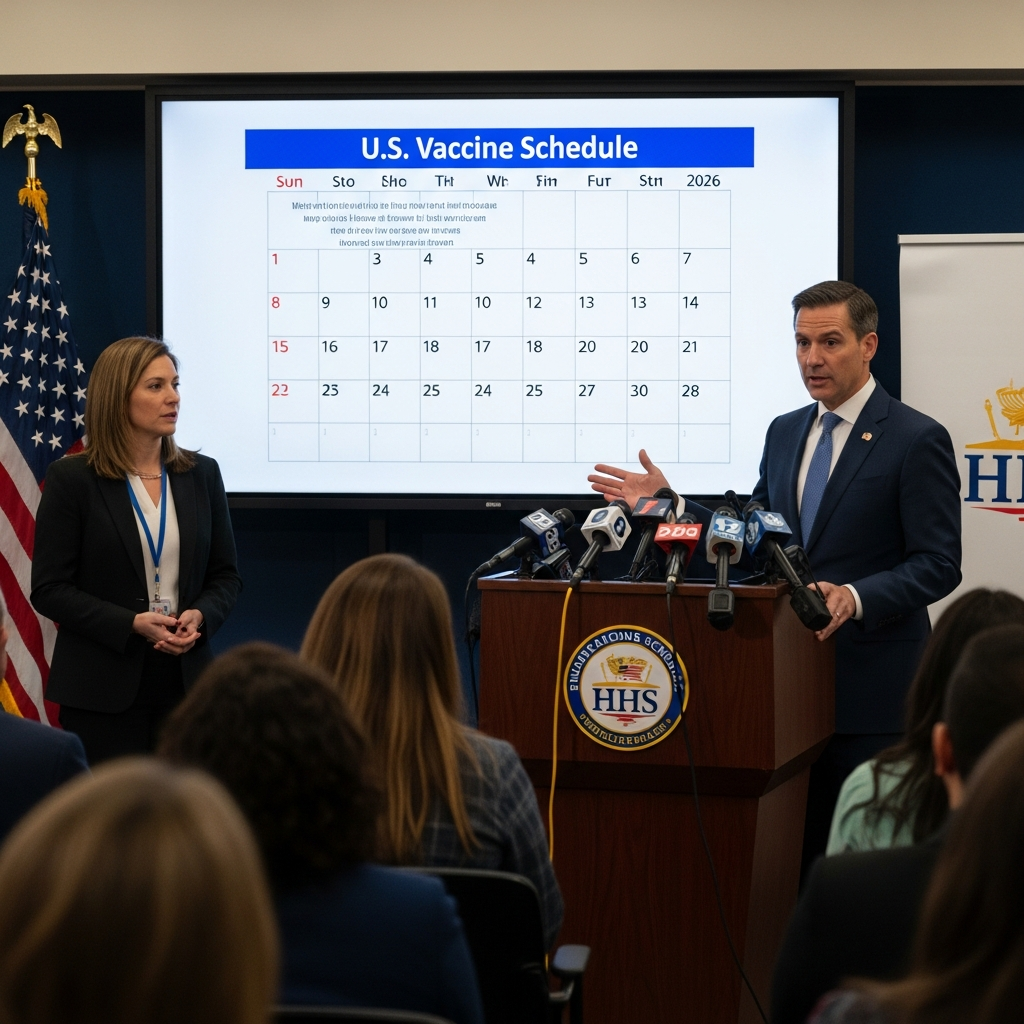A former professor known for his critical stance on COVID-19 policies, including vaccine mandates, has been appointed to a key advisory panel for the Centers for Disease Control and Prevention (CDC). Martin kulldorff, previously affiliated with Harvard University, is now a member of the CDC’s Advisory Committee on Immunization Practices (ACIP). This significant appointment comes as part of a complete restructuring of the influential board by the federal government, sparking considerable debate and highlighting a broader effort to address public trust in health agencies and vaccine policy. The move signals a notable shift in the composition of the panel responsible for shaping U.S. vaccine recommendations.
Background of Martin Kulldorff
Martin Kulldorff served as a professor of medicine at Harvard University from 2003 until 2021. His tenure at the prestigious institution ended following his dismissal. This termination, as disclosed by Kulldorff himself in a March 2024 op-ed, was a direct result of his refusal to comply with the university’s COVID-19 vaccine mandate and his public protests against such requirements. He cited personal health reasons for his decision not to get vaccinated.
Kulldorff’s views on pandemic response have been a subject of widespread discussion and controversy. He was a prominent co-author of the Great Barrington Declaration, published in October 2020. This declaration advocated for a focused protection strategy against COVID-19, arguing that institutional lockdowns caused significant damage and that achieving herd immunity through natural infection was the primary path to escaping the virus before widespread vaccine availability. This perspective sharply contrasted with the consensus among many public health experts globally, who argued that natural infection was not a safe or effective path to herd immunity and that lockdowns and vaccinations were necessary to prevent excessive deaths and protect healthcare systems.
Beyond his academic career and pandemic-related commentary, Kulldorff has held previous advisory roles on scientific panels for both the CDC and the Food and Drug Administration (FDA). He reportedly served on the CDC’s COVID Vaccine Safety Working Group in 2020 but stated he was removed after disagreeing with the agency’s pause on the Johnson & Johnson vaccine. He also has ties to conservative think tanks and has earned compensation as an expert witness in litigation against a major pharmaceutical company concerning one of its vaccines. Kulldorff currently holds a position as a fellow at Hillsdale College’s Academy for Science and Freedom.
Overhauling the CDC Vaccine Advisory Committee
The appointment of Kulldorff is part of a sweeping change initiated by Health and Human Services (HHS) Secretary Robert F. Kennedy Jr. In a significant departure from established practice, Kennedy announced in a June 9 op-ed that the federal government was replacing the entire 17-member roster of the Advisory Committee on Immunization Practices (ACIP). Historically, career agency officials were responsible for vetting potential ACIP members before forwarding recommendations for secretarial approval. This process appears to have been bypassed in the recent overhaul.
Kennedy stated his rationale for this drastic measure was to address what he described as a “crisis of public trust” concerning health agencies, pharmaceutical companies, and vaccines. He highlighted concerns that previous committee members might have had financial incentives to favor certain vaccines. Kennedy argued that a “clean sweep” was necessary to restore confidence and bring in a “diversity of viewpoints.” He also noted that replacing the panel allowed the current administration to appoint a majority of new members sooner than would have been possible under the typical rotation schedule, which would have extended until 2028. Reports also suggest the fact that the previous 17 members were appointed by the prior administration played a role in the decision. Alongside replacing the committee members, career officials who previously oversaw the ACIP and its agenda were also reportedly removed and replaced by an administration appointee.
Introducing the New ACIP Members and Emerging Concerns
Robert F. Kennedy Jr. has characterized the eight new members appointed to the ACIP as “credentialed scientists, leading public-health experts, and some of America’s most accomplished physicians.” He has asserted that these individuals are “committed to evidence-based medicine, gold-standard science, and common sense” and will demand robust safety and efficacy data before making any new recommendations. While Kulldorff brings a background in infectious disease epidemiology and previous panel experience, the selection of several other appointees has drawn immediate and sharp criticism from infectious disease and vaccine experts outside the administration.
Critics have raised concerns about the speed and lack of transparency in the selection process. More significantly, questions have been posed regarding the qualifications and past public health stances of several appointees. Some new members have ties to Robert F. Kennedy Jr.’s inner circle, have previously questioned mainstream vaccine recommendations, or have connections to groups often critical of established vaccine policies. For instance, one appointee is linked to an organization widely viewed as an anti-vaccine advocacy group. Another individual appointed has had their claimed university faculty affiliations disputed by the institutions themselves. Prominent figures known for spreading misinformation about COVID-19 and unproven treatments have also been appointed. While HHS has defended the choices as replacing “vaccine groupthink” with diverse perspectives and promised public ethics agreements, external medical professionals have expressed deep reservations. They worry that appointing individuals with histories of skepticism or criticism regarding vaccine science could compromise the ACIP’s integrity and undermine public confidence in vaccine recommendations, which are crucial for guiding federal policies and vaccine coverage.
What This Means for U.S. Vaccine Policy
The Advisory Committee on Immunization Practices (ACIP) holds significant influence over U.S. vaccine policy. Its recommendations directly impact federal guidelines for vaccine distribution, including which vaccines are included in routine immunization schedules and often determine eligibility for mandated insurance coverage. A fundamental shift in the composition and perspectives of this committee could potentially lead to changes in future vaccine recommendations, although the specific direction and extent of any changes remain to be seen.
The controversy surrounding the appointments highlights the deep divisions and public trust issues related to vaccines and public health agencies that emerged during the COVID-19 pandemic. While the administration states the changes are aimed at restoring trust through greater transparency and diverse viewpoints, critics argue that appointing members with histories of questioning established science could have the opposite effect, further polarizing the public and potentially complicating efforts to maintain high vaccination rates against preventable diseases. The coming months will likely reveal how the new ACIP approaches its critical role and whether the changes lead to a restoration of public trust or further erode it.
Frequently Asked Questions
Why was Martin Kulldorff appointed to the CDC’s vaccine board?
Martin Kulldorff was appointed to the CDC’s Advisory Committee on Immunization Practices (ACIP) by Health and Human Services Secretary Robert F. Kennedy Jr. His appointment is part of a complete replacement of the previous ACIP panel. Kennedy stated the overhaul was aimed at addressing a “crisis of public trust” in health agencies and removing perceived financial conflicts of interest among previous members.
Who else was appointed to the CDC ACIP alongside Kulldorff?
Seven other individuals were appointed to the new eight-member ACIP panel by Secretary Kennedy. These appointees include individuals with diverse backgrounds, including some who have publicly expressed skepticism regarding mainstream COVID-19 policies, vaccine mandates, or specific vaccine safety data. Notable appointees include figures known for controversial stances during the pandemic, raising concerns among external medical experts about the panel’s direction.
What is the potential impact of these new appointments on CDC vaccine recommendations?
The ACIP is highly influential, advising the CDC on vaccine use and distribution, which impacts federal policy and insurance coverage. The appointment of members with different perspectives, some of whom have previously criticized standard vaccine policies or questioned safety data, could potentially lead to altered approaches or increased scrutiny in future vaccine recommendations compared to the previous committee, though specific changes are not yet determined.




